About the author
Vesna Manojlovic is Community Builder at RIPE NCC.
Vesna joined the RIPE NCC as a Trainer in 1999. In 2003, she took responsibility for developing and delivering advanced courses, such as RPSL, Routing Registry, DNSSEC and IPv6. In 2008, she lead efforts to establish IPv6 RIPEness as a measure of IPv6 deployment among LIRs. In 2011, she joined the Science Division as Manager of the Measurements Community Building team; in 2015 she moved to Communications Department as Senior Community Builder, with a focus on organising hackathons.
Vesna gives presentations at many technical conferences and workshops, and enjoys visiting hackerspaces.
Vesna received a Batchelor of Sciences Degree in Computer Science and Informatics from the School of Electrical Engineering, University of Belgrade. She has three children.
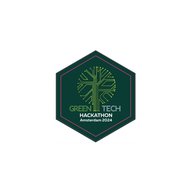
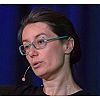
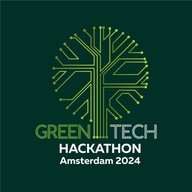
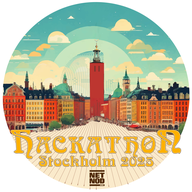

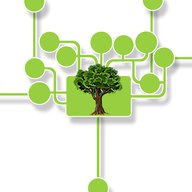

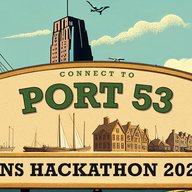
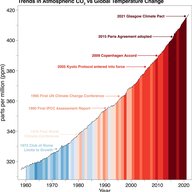




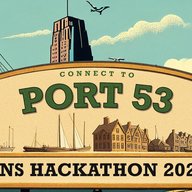



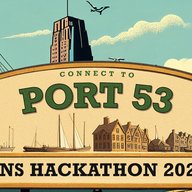

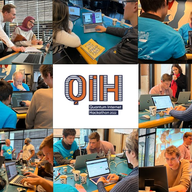

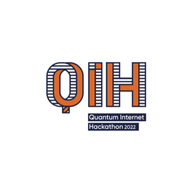



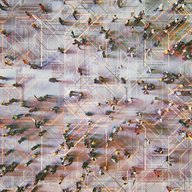



“I personally think sustainability is an important goal to achieve in our industry, however RIPE NCC's efforts in this direction appear at least misguided. Instead of recommending, for example, low power devices, or manufacturers produce such devices, the output of Hackathons and other similar events sponsored by RIPE NCC (through the membership fees) can be summarized to: "I went out for a drink with my friends, had a great time, ended up with 5 ChatGPT queries, here is my consulting business, we will do a BCOP next." And this is not the first article of this kind. I would prefer membership fees be used for something more useful. Thank you in advance!”
Jooset, thank you for your feedback. Participants in the hackathons come from the very wide RIPE community, and they invest their time and energy in contributing to the topic of Green Tech, whereas RIPE NCC membership fees have been used to cover the logistics of the event organisation, such as venue, food, and t-shirts. Some of the projects suggested more efficient devices (supercapacitors instead of batteries), while others produced IETF drafts or free software code that anyone can reuse (for DNS, BGP, or Gemini protocol improvements). In general, since 2014, hackathons have been considered a useful way to spend membership money to contribute back to the RIPE community. I am sad that you do not agree with this, but there are many views on RIPE NCC services, and I appreciate your feedback. As I mentioned in my previous response to your earlier comment, please consider joining the RIPE NCC members mailing list to discuss or suggest any changes: https://mailman.ripe.net/mailman3/lists/members-discuss.ripe.net/.
“I would really appreciate if RIPE NCC funds would be used for something better, not watt-metering DNS servers. This should not be a kindergarden project. Optimize some code to make DNS software or packet forwarding in various kernels more energy efficient, and publish that code open source. That would be a great hackathon. I do not think there will ever be a configuration setting for "I'm in love with the planet, make my packets take the least carbon generating path". Not even a "disable my DNS encryption to save power". Does anybody think differently? PS. HTTPS generates more carbon than HTTP, it was not covered in this Hackathon, perhaps next year? Disabling HTTPS on all NCC websites would both save the planet and membership money. But better put a watt-meter on it first to be sure.”
Jooset, thank you for your feedback. Environmental sustainability is a complex challenge, and although there are many ways to reduce ecological impact – indeed (and unfortunately) – there’s no simple configuration setting for saving the planet. If you want to suggest something or discuss how the RIPE NCC should be spending membership money, please join RIPE NCC members mailing list: https://mailman.ripe.net/mailman3/lists/members-discuss.ripe.net/
In the meantime, I received comments from the (Mastodon) community, that are worth adding to this page: * this hackathon is explicitly NOT about web3 / NFT / Blockchain / DAO / Generative "AI" * one of the desired & expected outcomes is ALSO: "patches / bug fixes in existing green software" This would emphasize the importance of maintenance of existing infrastructure, next to the development of new solutions. (suggested by Joost van Baal-Ilić ) * here are some additional interesting possible data sources: https://gijn.org/stories/exposing-money-behind-environmental-destruction-investigating-investors/
Recent addition to the chapter about academic travel: art installation "Travel Less Without Loss" by École Polytechnique Fédérale de Lausanne, illustrating in 3D the discrepancies between the Paris Agreement goals (yearly, 2T) and average Swiss citizen emissions (14T); and between train trips vs. flight emissions. https://actu.epfl.ch/news/outdoor-exhibition-highlights-the-impact-of-academ/ They also say: "I believe that as scientists, and as members of an academic institution like EPFL more generally, we have a civic duty to sound the public alarm.” This sounds very similar to my own experience: "Changing our travel practices is anything but child’s play. It involves making hard, carefully considered choices. The idea isn’t simply to give up traveling altogether, which can have serious repercussions for a person’s academic career. Instead, it’s about combining trips, deciding not to travel when we don’t need to, taking the train when possible,"... since I did not take any flights since end-2018. Exhibition web site: https://www.epfl.ch/campus/mobility/mobility-and-travel/academic-travel/travel-environmental-impact/exhibition-on-the-carbon-footprint-of-air-travel/
Transcript & the video of the session about environmental impacts of digital/Internet technologies can be found here: https://eurodigwiki.org/wiki/Building_cross-stakeholder_awareness_and_understanding_of_the_direct_and_indirect_environmental_impacts_of_digital/Internet_technologies_and_how_to_mitigate_them_–_WS_04_2023 and https://youtu.be/FMX6pYK3eWg
IETF draft has been published for the report from this workshop: "Report from the IAB Workshop on Environmental Impact of Internet Applications and Systems, 2022" https://datatracker.ietf.org/doc/draft-iab-ws-environmental-impacts-report/
Here is the video recording of the talk and panel about Internet history: "Remembering the Internet Revolution in Belgrade" : https://ripe85.ripe.net/archives/video/881/
In October 2022, at RIPE85 meeting in Belgrade, there was another talk and another panel about Internet history: "Remembering the Internet Revolution in Belgrade" https://ripe85.ripe.net/archives/video/881/
Here is a link to the video recording of the presentation & the panel: "Technical history of Internet Infrastructure in ex-Yugoslavia" https://www.youtube.com/watch?v=ohp-MKVVYjQ&t=17478s Jelena Cosic (RIPE NCC) & Slobodan Markovic (UNDP) "Internet in Yugoslavia - From JUPAK to IP" (slides) https://www.ripe.net/participate/forms/uploads/fobi_plugins/file/see-10/Internet%20in%20Yugoslavia-FINAL_0f14b91c-6c4e-40e4-9ab3-b132acf8057c.pdf
I am happy to add the link to the presentation I gave about this topic at MCH2022 conference - please find the video here: https://media.ccc.de/v/mch2022-442-computing-within-limits#t=203
Showing 43 comment(s)